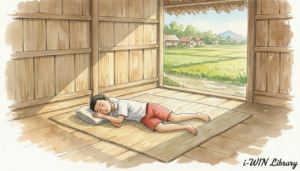Cultural Habitus of Tiban Traditional Performance as a Part of Rain-Invoking Ritual in Wajak Kidul Tulungagung

Author(s): Mahjati Nur Amalina; Kun Setyaning Astuti; Muthohiroh Layli Yusufi
Institution: Yogyakarta State University
Category: Article, IJMMU
Topics: Habitus; Tiban; Rain-Invoking; Cultural Adaptation
This study discusses a phenomenon of how the concept of habitus manifests in the Tiban traditional performances which creates the practices, the symbols, the reproduction, and the transmission of culture. Habitus is a habit and way of thinking which originated from a social structure. Tiban is a traditional performing art from Wajak Kidul Tulungagung which is a form of transcendental communication as a part of rain-invoking ritual for the community to ask for rain in the middle of the dry season. Various kinds of art forms in Tiban cultural performances make a great appeal to be explored further, particularly about the cultural practices contained therein. This study also looks into what causes the adaptation of the transformation and the changes. When the social setting changes, habitus can play a role in choosing, modifying, or preserving traditional elements that are considered relevant. Overall, this paper highlights that habitus is an important mechanism in the realization of values and symbols in the Tiban tradition, shaping the way society understands, interprets, and practices the tradition, ensuring its continuity, and enabling adaptation to social change.
Article can be downloaded here >>Cultural Habitus of Tiban Traditional Performance as a Part of Rain-Invoking Ritual in Wajak Kidul Tulungagung | Amalina | International Journal of Multicultural and Multireligious Understanding








